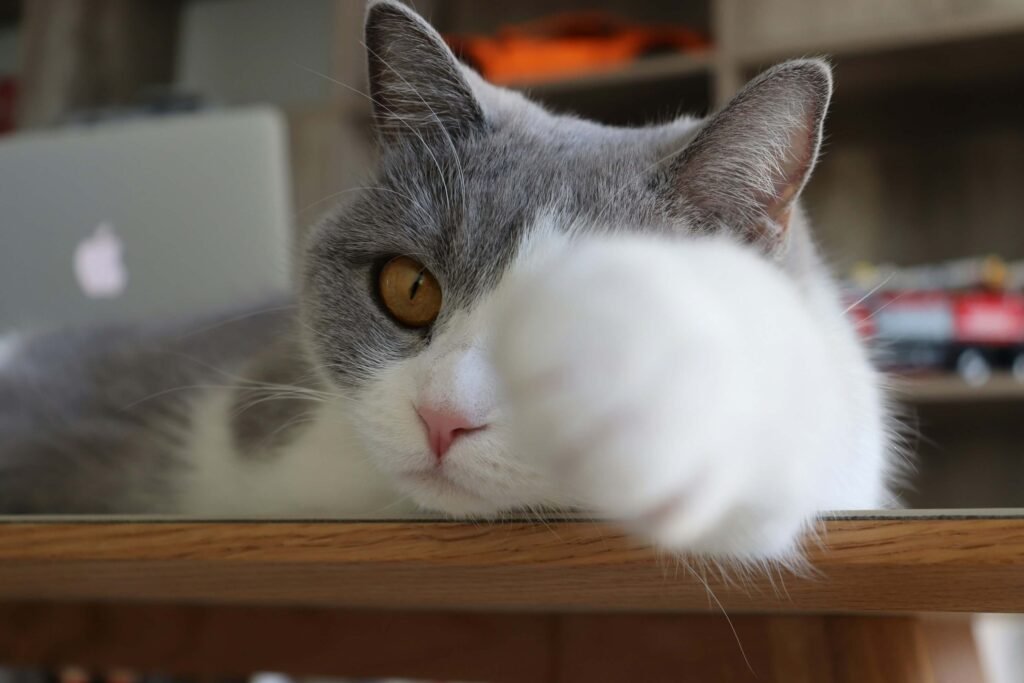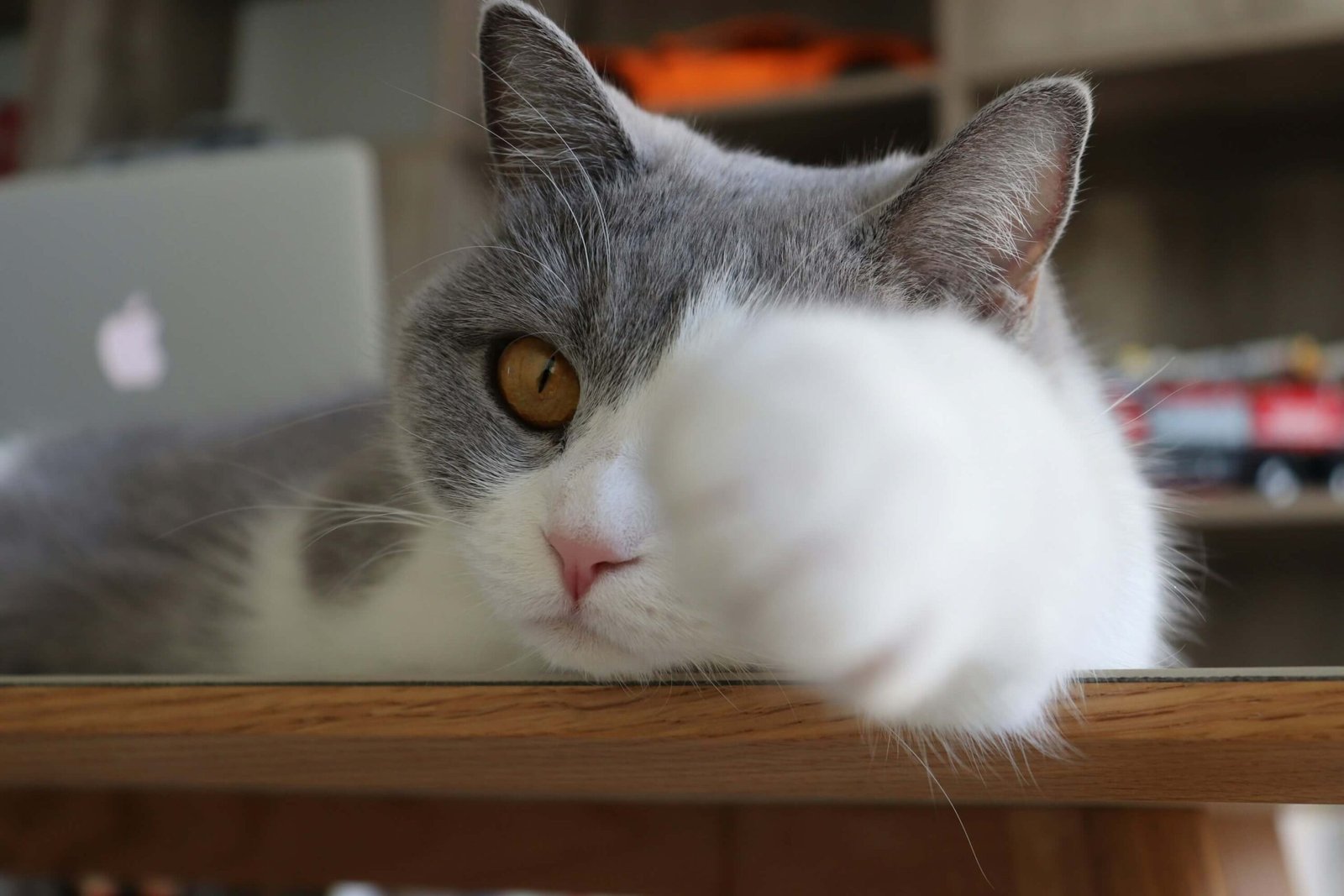Why Does My Cat Squeak? Decoding the Tiny Sounds of Your Feline Friend
Have you ever been startled by a high-pitched squeak coming from your cat? While cats are known for their soft purrs and occasional meows, some felines surprise their owners with adorable—or sometimes concerning—squeaks. These tiny sounds can range from endearing to puzzling, leaving many pet parents wondering what they mean. In this blog post, we’ll explore the reasons behind your cat’s squeaking behavior, helping you better understand your furry companion and strengthen your bond.
Common Reasons Why Cats Squeak
Cats communicate in various ways, and squeaking is just one of the many sounds they use to express themselves. Here are some common explanations for why your cat might be squeaking:
Playfulness:
Cats often make squeaky noises during playtime to mimic hunting or to express excitement.Attention-Seeking Behavior:
If your cat wants food, affection, or playtime, it may use squeaks as a way to grab your attention.Curiosity:
When exploring new environments or objects, cats might squeak out of curiosity or mild anxiety.Age Factor:
Kittens are more likely to squeak than adult cats, as they’re still learning how to vocalize effectively.Health Concerns:
Persistent or unusual squeaking could indicate an underlying medical issue that needs veterinary attention.
Understanding these reasons can help you determine whether your cat’s squeaking is normal or if further investigation is needed. Always pay attention to changes in your cat’s behavior to ensure their well-being.
How to Respond to Your Cat’s Squeaking
If your cat has started squeaking frequently, you might wonder how best to respond. Below are some actionable steps you can take to address your cat’s vocalizations:
Observe Their Body Language:
Pay close attention to your cat’s posture, tail movement, and facial expressions to interpret their mood alongside the squeaks.Check for Stress Triggers:
Identify potential stressors in your home environment, such as loud noises or unfamiliar people, which could cause anxious squeaking.Engage in Playtime:
Provide interactive toys or engage in games to redirect playful squeaking into constructive activities.Consult a Veterinarian:
If the squeaking seems excessive or accompanied by other symptoms, schedule a vet visit to rule out health problems.Reinforce Positive Behavior:
Reward quiet moments with treats or praise to encourage calmer communication over time.
By taking these steps, you can create a supportive environment for your cat while addressing any concerns about their squeaking habits.
Check this guide 👉Why Does My Cat Shake His Tail? Best 7 Behavior Tips!
Check this guide 👉Why Is My Cat Meowing So Loudly? Best 7 Expert Behavior Tips
Check this guide 👉What Does It Mean When Your Cat Headbutts You? Best 7 Tips!

Possible Causes of Cat Squeaking | What You Can Do About It |
|---|---|
Playful excitement | Engage in interactive play sessions |
Hunger or thirst | Ensure regular feeding and water access |
Anxiety or fear | Create a safe, calming space |
Medical conditions | Schedule a vet check-up |
Attention-seeking tendencies | Spend quality bonding time daily |
When Should You Worry About Your Cat’s Squeaking?
While most instances of squeaking are harmless, there are times when this behavior could signal something more serious. Consider the following scenarios where professional advice may be necessary:
Sudden Changes in Vocalization Patterns:
If your normally quiet cat suddenly starts squeaking excessively, it could indicate discomfort or illness.Accompanying Symptoms Like Lethargy or Loss of Appetite:
These signs paired with squeaking could point to a medical condition requiring immediate care.Difficulty Breathing or Swallowing:
Squeaks combined with labored breathing should never be ignored and warrant urgent vet attention.Prolonged Episodes Without Clear Cause:
Persistent squeaking without an obvious trigger may require behavioral or medical evaluation.Aggression or Fearful Behavior:
If squeaking occurs alongside aggressive body language, it could signify stress or territorial issues.
Being proactive about your cat’s health ensures that minor issues don’t escalate into major problems.
Tips for Reducing Unwanted Squeaking
If your cat’s squeaking becomes disruptive or excessive, here are some practical tips to manage the behavior:
Establish a Routine:
Cats thrive on consistency; set predictable feeding, play, and sleep schedules to reduce anxiety-triggered squeaking.Provide Mental Stimulation:
Puzzle feeders and climbing structures can keep your cat entertained and minimize boredom-related vocalizations.Limit Startling Noises:
Reduce sudden loud sounds in your home, as they can unsettle your cat and lead to anxious squeaking.Use Calming Products:
Items like pheromone diffusers or calming sprays can help soothe nervous cats prone to squeaking.Ignore Attention-Seeking Squeaks:
Avoid reinforcing unwanted behavior by not giving in to demands made through squeaking.
Implementing these strategies can help curb unnecessary squeaking while fostering a peaceful household.
Understanding the Emotional Side of Squeaking
Cats often use squeaks as a way to express their emotions, whether it’s excitement, frustration, or even confusion. These sounds can serve as windows into their inner world, helping us better understand how they’re feeling at any given moment. Here are some emotional triggers that might lead to squeaking:
Excitement Over Food:
Cats may squeak when they see their food bowl being filled, expressing anticipation and joy.Frustration During Play:
If a toy is out of reach or a game isn’t going their way, cats might squeak to vent their annoyance.Confusion in New Situations:
Being introduced to unfamiliar environments or objects can cause squeaky reactions due to uncertainty.Affectionate Greetings:
Some cats squeak softly when greeting their owners, showing love and recognition.Overstimulation from Petting:
Cats may squeak if they’ve had enough petting, signaling they need a break.
By recognizing these emotional cues, you can respond appropriately to your cat’s needs and strengthen your bond with them.
Training Your Cat to Minimize Excessive Squeaking
While occasional squeaking is normal, excessive vocalization can become disruptive. With patience and consistency, you can gently guide your cat toward quieter communication habits. Here are some training tips to consider:
Ignore Unnecessary Squeaks:
Avoid giving attention to squeaks that occur without a clear purpose, as this reinforces the behavior.Reward Quiet Moments:
Offer treats or praise when your cat remains calm and silent for extended periods.Redirect Energy into Play:
Use toys or interactive games to channel your cat’s energy away from squeaking.Teach Basic Commands:
Simple commands like “quiet” can help manage vocalizations if practiced regularly with positive reinforcement.Be Patient and Consistent:
Behavior modification takes time, so stay committed to the process for lasting results.
Training your cat requires dedication, but the effort will pay off in a more harmonious living environment.
Fun Facts About Cat Sounds
Cats have an impressive range of vocalizations, and squeaks are just one part of their rich communication repertoire. Learning about the diversity of feline sounds can deepen your appreciation for your furry friend. Here are some intriguing facts about cat noises:
Cats Have Over 100 Vocal Sounds:
From chirps to growls, cats possess a wide array of vocal expressions compared to most animals.Squeaks Are Often Silent Meows:
Sometimes, what we hear as a squeak is actually a meow that didn’t fully form due to incomplete air passage.Each Cat Has a Unique Voice:
Just like humans, every cat has its own tone, pitch, and style of vocalization.Mother Cats Use Squeaks to Communicate with Kittens:
Squeaky sounds are common among mother cats guiding their young ones during early development.Cats Adjust Their Sounds Based on Human Reactions:
Research shows that cats modify their vocalizations depending on how their owners respond to them.
These fun facts highlight the complexity and charm of feline communication, making your cat’s squeaks all the more special.
Frequently Asked Questions About Cat Squeaking
Is it normal for my cat to squeak?
Yes, occasional squeaking is normal, especially during play or interaction. However, persistent squeaking may need investigation.
Can older cats squeak too?
While kittens are more prone to squeaking, older cats can also make these sounds due to excitement, stress, or health issues.
Does squeaking mean my cat is in pain?
Not always, but if the squeaking is frequent and accompanied by other symptoms, it could indicate pain or discomfort.
How do I stop my cat from squeaking at night?
Ensure your cat is mentally and physically stimulated before bedtime, and avoid reinforcing nighttime squeaking with attention.
Should I record my cat’s squeaking for the vet?
Yes, recording the sound can help your veterinarian diagnose any underlying issues more accurately.
Final Thoughts: Embracing Your Cat’s Unique Voice
Every cat has its own unique way of communicating, and squeaking is just one of the many fascinating aspects of feline behavior. By paying close attention to your cat’s squeaks—and understanding their context—you can deepen your connection and ensure your pet feels heard and cared for. Remember, while occasional squeaking is usually harmless, staying vigilant about changes in your cat’s vocal patterns is key to maintaining their health and happiness. So the next time your cat lets out a little squeak, take a moment to appreciate the charm and individuality behind those tiny sounds!
Dog Tapeworm Life Cycle: Best 7 Expert Tips! – Learn how tapeworms infect dogs, spot symptoms, and break the cycle with expert prevention strategies.
Anxious Cat Body Language: Best 7 Expert Tips! – Learn to spot signs of stress, understand triggers, and help your cat feel safe and relaxed.
Anxious Dog Body Language: Best 7 Expert Tips! – Learn to spot signs of anxiety, respond effectively, and help your dog feel safe and secure.
Is Breeding Dogs Bad? Best 7 Expert Tips! – Explore the ethics, benefits, and risks of dog breeding to make informed decisions for a better future.





